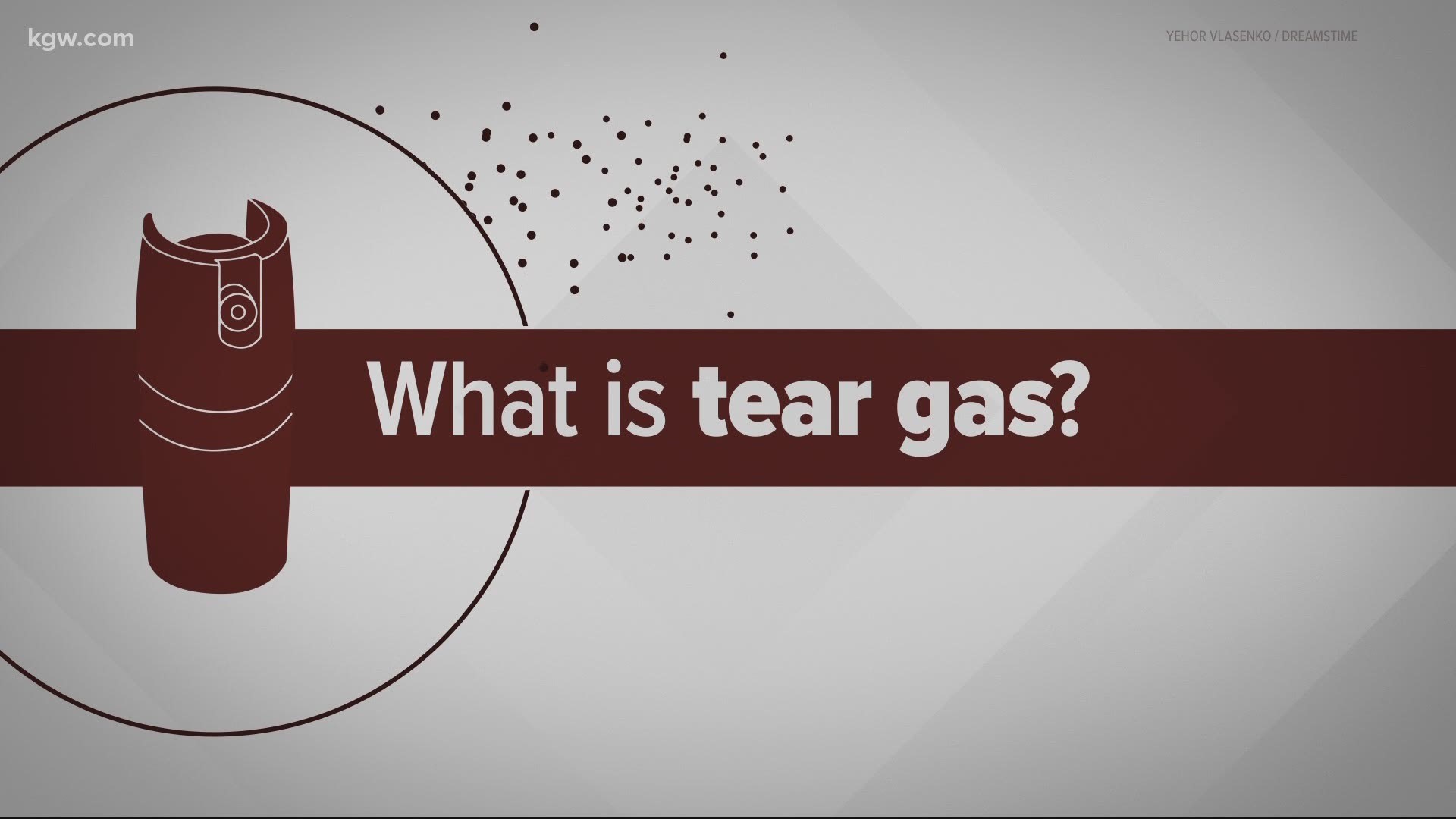PORTLAND, Ore. — Calls for law enforcement agencies, including the Portland Police Bureau, to stop the use of tear gas on protestors have been made across the country.
Portland Mayor Ted Wheeler said the Portland Police Bureau will only use tear gas as a last resort in life-threatening situations.
Portland City Commissioners Jo Ann Hardesty and Chloe Eudaly both said they want the city to go further by banning tear gas.
Portland Police Deputy Chief Chris Davis said several times in press conferences that officers don't use CS gas.
Several KGW News viewers have reached out in the past week, wanting to know what is the difference between tear gas and CS gas, and how does it affect the body?
The official definition of tear gas is any group of substances that irritate the mucous membranes of the eyes causing a burning sensation.
CS gas is a powder that when mixed with solvent becomes an aerosol in tear gas.
As first reported by ProPublica, CS activates a specific pain receptor, one that’s also triggered by eating wasabi. However, CS is up to 100,000 times stronger than the sting from wasabi.
CS is very painful when it gets on your skin or eyes and when inhaled, it causes people to cough.
Randy Blazak, a Portland-based sociologist who studies policing issues experienced CS gas for the first time Friday after attending the demonstration in front of the Justice Center in downtown Portland.
“Right over my head, a tear gas canister lands behind me. And I start breathing the tear gas, it sort of comes on you in a wave all the sudden I'm on my hands and knees coughing,” said Blazak.
PPB Deputy Chief Davis said the effects of CS gas can wear off quickly at a news conference last week.
“If you walk out of it you really stop feeling effects right away. You'll have some residual effects that I've encountered it, I might get a little bit of an aftertaste. You're functional a lot faster, and you'll suffer a whole lot less long,” Deputy Chief Davis said.
Health officials like Dr. William Lambert of OHSU PSU School of Public Health said the impact can last for weeks.
“CS and capsaicin are both powerful oxidating agents which burn the mucous membrane so that the eyes, nose, and throat are left with lasting impairment for up to three months to fight viral infections," Dr. Lambert said.
He added he and other medical professionals are concerned about tear gas and its role in spreading coronavirus.
“It’s two actions happening in parallel, one enhancing the transmission of the virus to others, and then impairing the individuals who are exposed to tear gas to be able to fight off the virus,” said Dr. Lambert.
OHSU recently released a statement saying the use of tear gas could exacerbate the spread of Coronavirus.

